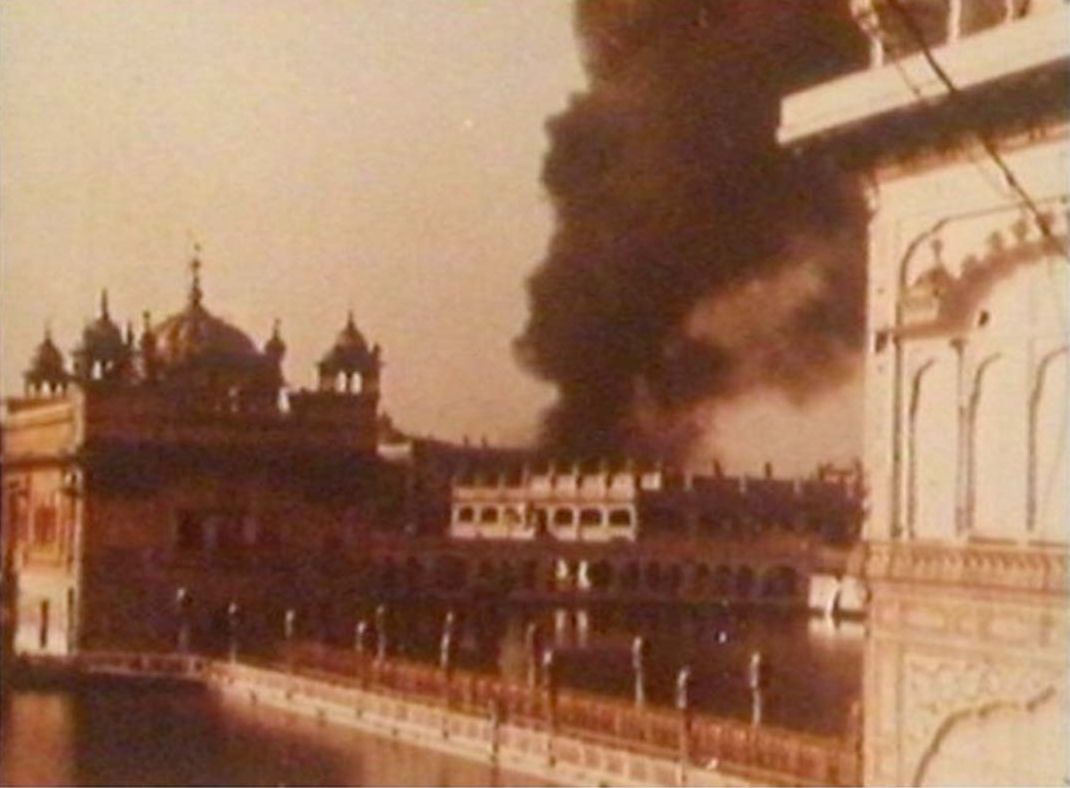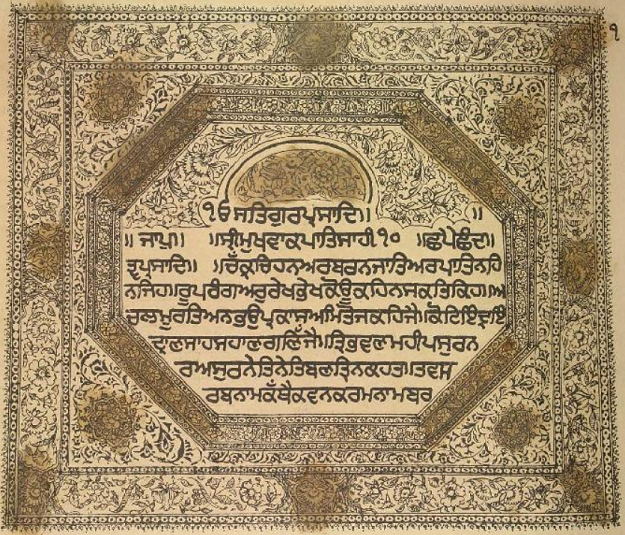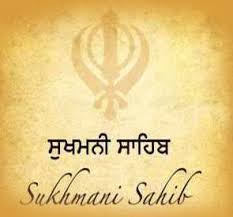
At every opportunity, Agha Khan sought out Jaswant Singh to hear more about the valour, bravery, selfishness and humility of the Sikhs. The more he heard, the more eager he became to join his brothers.
At one of the caravan's halts, Agha Khan noticed some people sitting under a tree. Walking up to them he saw that they were Sikhs. One of them sat alone with a hang-dog look, while the rest discussed something among themselves. They were not Punjabi Sikhs, but belong to that region.
Agha Khan asked them what was the problem? One of them said, "This man has gone against our religious codes and abused another Sikh. He has plotted with a Pathan to beat up this Sikh brother."
Agha Khan: It's a quarrel between these two men. Why don't you let them sort it out between themselves?
Jathedar: Khan Sahib, we are Sikhs. Our beliefs and ways are quite unique. We are all brothers and if there is any misunderstanding among us, we go to the gurdwara and clear it up. We are forbidden to fight among ourselves. In fact, anyone found doing so is liable to punishment and is declared tankhayia. No Sikh is allowed to criticise another Sikh behind his back, and that too to a non-Sikh? Never! All disputes are to be settled amicably within the family or in the gurdwara where the granthi Singh acts as the arbiter.
Agha Khan: All this sounds very complicated. Are you able to abide by this rule?
Jathedar: Very much so. We are all members of one family. If we don't love each other, what sort of a family are we?
Our Guru has clearly stated:
A Sikh may not abuse another Sikh.
A Sikh may not criticize another Sikh.
A Sikh may not conspire with another Sikh or non-Sikh to cause harm to a fellow-Sikh.
If we do not follow these rules, then we cannot be brothers. And if brothers harbour enmity towards each other, they will fight and kill each other. We must maintain unity among ourselves, with love and trust as to be able to face our enemies.
We are all human and it is but natural for differences to arise. We are advised to overlook the other person's wrongdoing, or try and reform him and not to expose him to public ridicule. This brother has committed a serious wrong and so our whole group had to sit on judgement.
Agha Khan: What have you decided?
Jathedar: He has confessed. The punishment awarded to him is to offer Rs 1.25 in Guru's golak and to recite Japji Sahib five times. Then he must organise a meal at his house for Sikhs and personally invite the person he has wronged. They must all sit together and eat.
Please, don't be offended, Khan Sahib, but this is the way of our community. We do not solve our problems by involving outsiders, however close or friendly they may be.
Agha Khan was greatly impressed by this and related the whole incident to Saeen and Jaswant when he returned to the camp.
Finally the caravan reached Peshawar. While the travelers made camp, Agha Khan stayed as an honoured guest with the Khan of Peshawar. A return cavalcade of travelers to Kabul was ready and Agha Khan was to accompany it back.
On the banks of a river, Agha Khan, Saeen and Jaswant Singh met to plan how they could reach Punjab quickly and safely. Agha Khan told them that he had already sent of the Kabul caravan with his assistant in charge. He had handed over the money and rations to him with the assurance that he would catch up with them in a few days.
When Jaswant Singh heard this, he said, "Khan Sahib, the lie you have used may be good sensed from a worldly point of view, but it is unacceptable as Sikhs base all their strategies on truth."
Agha Khan: My dear brother, when our enemy is full of wild, lies and treachery, shouldn't we use the same means to outwit him?
Jaswant Singh: During my exile the saintly person who helped me in Kabul told me, 'A Sikh does not treat the path of falsehood. His very existence is based on remembering his Creator and he who lives in the presence of his Lord cannot act falsely. A liar can never be of service to his community.'
Lies become prevalent when self-centred people get together to fulfill their selfish motives. They use all kinds of deceitful tricks to defeat a common enemy, but in so doing this becomes deeply rooted in their nature leading to mutual distrust and suspicion. Gurbani says: Har Naamaiy ke hovoh jodi, (Sri Guru Granth Sahib Ang 1185) which means to come together in the Lord's name. Real unity is among gurmukhs who believe in the Lord's name and hence there is no place for suspicion and enmity.
(To be continued...)












I have been just introduced to your site. I would like to read Satwant Kaur from the beginning. You should make arrangements whereby readers can get back to previous publications.
Please see http://www.panthic.org/search.php?page=0&findString=Satwant+Kaur+: for the complete list of published Satwant Kaur chapters.